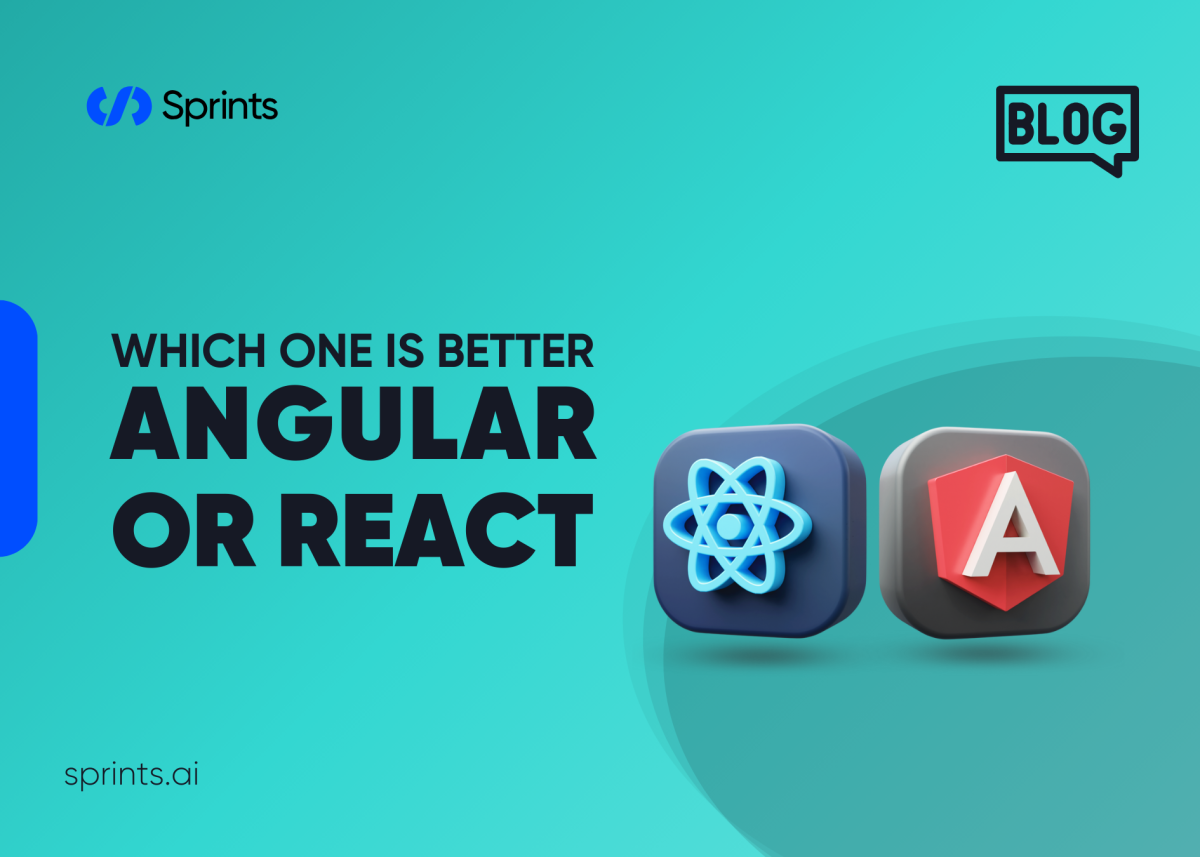
Choosing between Angular and React for your web development project can feel overwhelming. Both frameworks offer unique strengths, but which one is the better fit for your needs? In this article, we'll dive into a straightforward comparison between Angular and React, highlighting their differences, use cases, and advantages. By the end, you'll clearly understand whether Angular or React is better suited for your next project.
Angular Overview
Angular, developed by Google, is a robust JavaScript framework used widely for building dynamic web applications. It offers a structured approach with built-in features, which is ideal for large-scale projects.
Key Angular Features:
MVC architecture
Two-way data binding
Dependency injection
TypeScript integration
Pros of Angular:
Comprehensive built-in features
Strong community support
Efficient testing capabilities
Cons of Angular:
Steeper learning curve
Potentially slower performance for large applications
React Overview
React, created by Facebook, is a flexible JavaScript library popular for developing interactive and efficient user interfaces. It is known for its simplicity and component-based architecture, making it an excellent choice for both startups and large enterprises.
Key React Features:
Component-based architecture
Virtual DOM
JSX syntax
Strong community support
Pros of React:
High performance with Virtual DOM
Easy to learn
Great for SEO with server-side rendering
Cons of React:
Needs external libraries for complete solutions
Fast-paced updates can be challenging to keep up with
Comparing Angular and React
Let's explore specific criteria to help you understand which option might suit your project better.
Learning Curve: Angular vs React
Angular’s comprehensive framework includes a variety of tools out-of-the-box. This makes Angular ideal if your team is familiar with TypeScript and prefers structured guidelines.
React’s learning curve is gentler, making it highly accessible, especially for beginners or teams who prefer more flexibility.
Performance Considerations
React utilizes a Virtual DOM, significantly boosting performance, especially in dynamic applications with frequent UI updates. Angular can sometimes face performance challenges with complex apps due to its real-time two-way data binding.
Scalability of Angular and React
Angular is structured, making it easier to scale large applications systematically. React, while highly scalable, relies on additional tools and libraries such as Redux or MobX for state management.
Popular Use Cases
Understanding typical scenarios where Angular or React shine helps in choosing the right framework.
When to Choose Angular
Enterprise-level applications
Projects requiring extensive built-in solutions
Teams proficient with TypeScript
When to Choose React
Projects needing flexibility
Highly interactive UI requirements
Quick prototyping and MVP development
Community and Support
Both Angular and React boast robust communities, though React has a slightly larger and more active developer base due to its flexibility and simpler learning curve. Angular, maintained by Google, offers structured documentation and consistent updates.
Real-World Examples
Angular Examples:
Google applications
Forbes
Upwork
React Examples:
Facebook and Instagram
Netflix
Airbnb
These examples reflect the types of projects each framework can handle effectively, helping you envision your project more clearly.
SEO and Angular vs React
React is often seen as more SEO-friendly due to its ease in enabling server-side rendering (SSR), enhancing loading speeds and crawlability. Angular can achieve similar SEO results but typically requires additional configuration.
Maintenance and Future-Proofing
Angular's structured approach can simplify maintenance and upgrades, especially in enterprise environments. React’s component-based architecture allows for more straightforward incremental updates, offering a different kind of flexibility for future-proofing.
Cost and Efficiency
Angular’s extensive built-in tools might reduce additional spending on third-party integrations but could increase initial development time. React, with a lighter core, might involve extra investments in third-party tools but offers faster initial development and prototyping.
Conclusion: Angular or React – Which Is Better?
Choosing between Angular and React depends entirely on your project's needs. Angular is ideal for structured, large-scale applications demanding comprehensive solutions. React offers flexibility, faster performance, and easier SEO integration, making it perfect for dynamic, rapidly evolving projects.
Ultimately, evaluate your project requirements, team skills, and future growth plans. Both frameworks are powerful, widely adopted, and continually evolving to support modern web development practices.
Which one do you prefer? Share your experiences with Angular or React in the comments below or explore more in our related articles to deepen your understanding.



